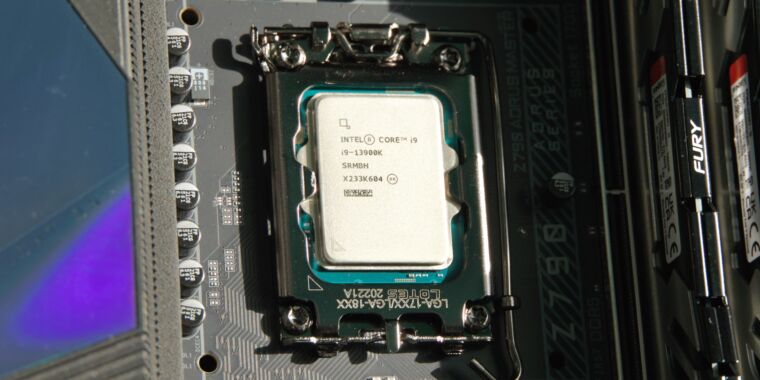Baca Juga:
Distribution
Distribution
Millions of Linux computers were at risk of being hacked due to a recently discovered security vulnerability. The flaw, found in the popular open-source operating system’s `kernel`, would have allowed attackers to gain remote access to these machines.
Vulnerable Systems
The vulnerability affected Linux systems running kernel versions 5.7 and above. This included a wide range of devices, from personal computers to servers and even some IoT devices. The potential impact of this security flaw was significant, with the potential for sensitive data to be compromised or systems to be taken over by malicious actors.
The Discovery
Security researchers from a cybersecurity firm were the ones who uncovered the vulnerability, which they described as a `race condition`. This type of flaw occurs when two or more pieces of code attempt to modify a shared resource at the same time, leading to unpredictable results. The researchers immediately reported their findings to the Linux kernel security team, who worked quickly to develop and release a patch to address the issue.
Mitigation Efforts
In response to the potential threat posed by this vulnerability, Linux users were urged to update their systems to the latest version of the kernel immediately. Major distributions, such as Ubuntu, Fedora, and Debian, released patches to address the flaw and protect their users from potential attacks. Additionally, security researchers worldwide collaborated to spread awareness of the issue and ensure that as many Linux users as possible were informed and protected.
Conclusion
Thanks to the swift actions of the security researchers and the Linux kernel security team, a potential disaster was averted. The vulnerability was patched before it could be exploited by malicious actors, ensuring that millions of Linux computers remained safe and secure. This incident serves as a reminder of the importance of staying vigilant and keeping software up to date to protect against cyber threats.
Vulnerable Systems
The vulnerability affected Linux systems running kernel versions 5.7 and above. This included a wide range of devices, from personal computers to servers and even some IoT devices. The potential impact of this security flaw was significant, with the potential for sensitive data to be compromised or systems to be taken over by malicious actors.
The Discovery
Distribution
Millions of Linux computers were at risk of being hacked due to a recently discovered security vulnerability. The flaw, found in the popular open-source operating system’s `kernel`, would have allowed attackers to gain remote access to these machines.
Vulnerable Systems
The vulnerability affected Linux systems running kernel versions 5.7 and above. This included a wide range of devices, from personal computers to servers and even some IoT devices. The potential impact of this security flaw was significant, with the potential for sensitive data to be compromised or systems to be taken over by malicious actors.
The Discovery
Security researchers from a cybersecurity firm were the ones who uncovered the vulnerability, which they described as a `race condition`. This type of flaw occurs when two or more pieces of code attempt to modify a shared resource at the same time, leading to unpredictable results. The researchers immediately reported their findings to the Linux kernel security team, who worked quickly to develop and release a patch to address the issue.
Mitigation Efforts
In response to the potential threat posed by this vulnerability, Linux users were urged to update their systems to the latest version of the kernel immediately. Major distributions, such as Ubuntu, Fedora, and Debian, released patches to address the flaw and protect their users from potential attacks. Additionally, security researchers worldwide collaborated to spread awareness of the issue and ensure that as many Linux users as possible were informed and protected.
Conclusion
Thanks to the swift actions of the security researchers and the Linux kernel security team, a potential disaster was averted. The vulnerability was patched before it could be exploited by malicious actors, ensuring that millions of Linux computers remained safe and secure. This incident serves as a reminder of the importance of staying vigilant and keeping software up to date to protect against cyber threats.
Mitigation Efforts
In response to the potential threat posed by this vulnerability, Linux users were urged to update their systems to the latest version of the kernel immediately. Major distributions, such as Ubuntu, Fedora, and Debian, released patches to address the flaw and protect their users from potential attacks. Additionally, security researchers worldwide collaborated to spread awareness of the issue and ensure that as many Linux users as possible were informed and protected.
Conclusion
Thanks to the swift actions of the security researchers and the Linux kernel security team, a potential disaster was averted. The vulnerability was patched before it could be exploited by malicious actors, ensuring that millions of Linux computers remained safe and secure. This incident serves as a reminder of the importance of staying vigilant and keeping software up to date to protect against cyber threats.

Baca Juga:
- Instagram enhances DM experience with new features
- Scientists announce groundbreaking solution for dengue in Brazil with genetically altered mosquitoes
- Mysterious Particle Found in Air Poses Risk for Alzheimer’s Development
- Mario fans treated to a trip down memory lane with Nintendo’s latest Switch trailer
- New Exoplanet with Similar Size to Saturn Found by Astronomers










+ There are no comments
Add yours